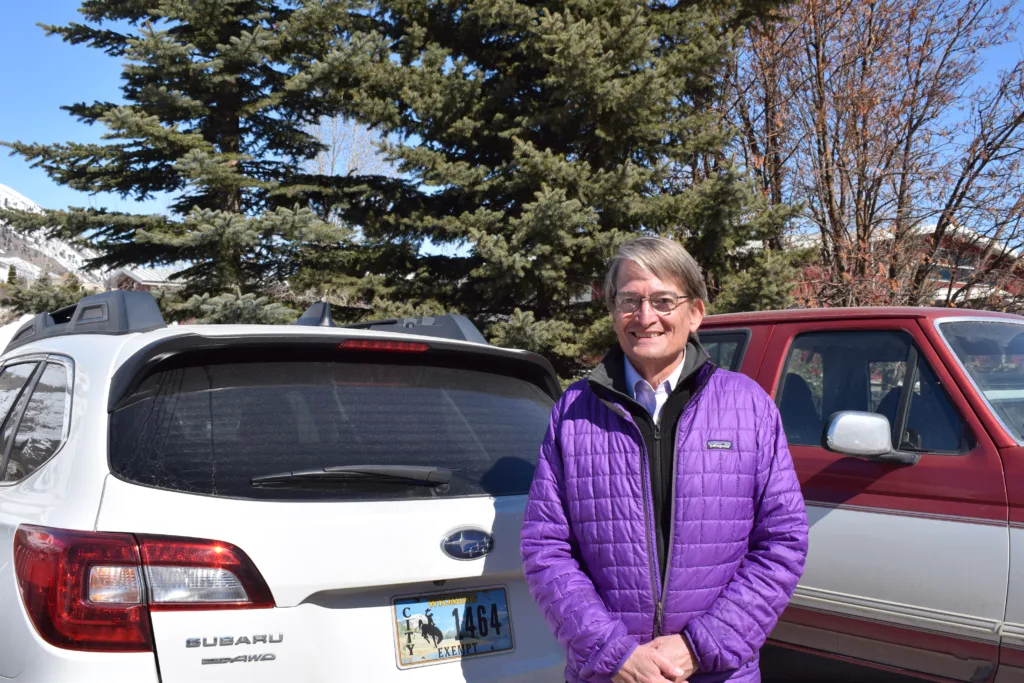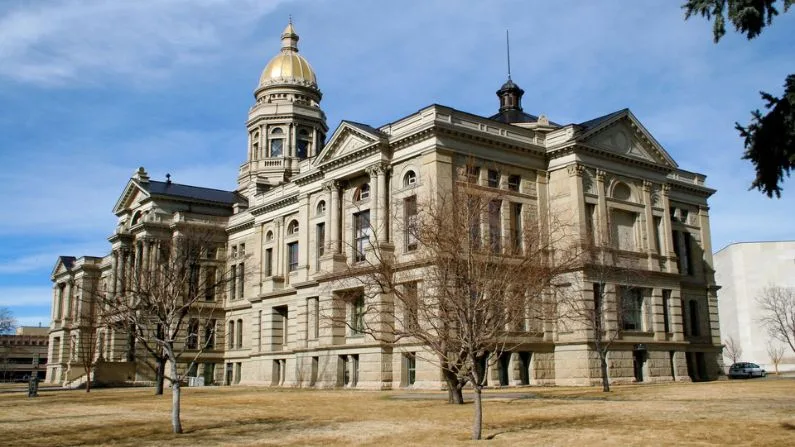Driving away from the state capitol, Arne Jorgensen checked the road conditions as he headed west across a snow-swept landscape, back towards the rugged Tetons.
“These high, high grasslands in Wyoming are amazing. I never get tired of the view,” said Jorgensen, a Jackson town council member. “I know a lot of people get dismissive of it, but I just find it’s something that I really appreciate.”
People living in and around the Tetons have shared in recent years that they don’t feel like their voices are being heard at Wyoming’s capitol. As the northwestern region becomes increasingly unaffordable for many, it’s grappling with issues unique to Jackson — far from where statewide decisions that affect local residents are being made.
So, Jackson and Teton County officials have made it a priority to play a larger role in building relationships in Cheyenne, to bring attention to priorities of locals.
For Jorgensen, also Jackson’s vice-mayor, that meant calling Cheyenne home during budget talks this year in an attempt to try and help get the region some relief.
He spent over two weeks at the state capitol — on the town’s dime — during the budget session where he attended floor sessions, meetings and conferences with state lawmakers.
As he headed back to Jackson in a white Subaru Outback the town loaned him, he said he’s “hopeful” recent efforts to advocate for local concerns will pay off.
“Our current council recognizes the importance of making and building relationships around the state,” Jorgensen said. “So I feel good about it.”
In years past, state legislation has been introduced that could have impacted Jackson, and even eroded local government control. That includes a recent bill that aimed to make the Teton County fairgrounds a state historical site, which could have affected the town’s efforts to build more places for people to live.
And in the fall, some lawmakers considered restricting the county’s ability to provide affordable housing, in an area with some of the largest wealth disparity in the United States.

Jorgensen stands alongside the white Subaru he drove to Cheyenne and back. Some have inquired if his purple Patagonia jacket is emblematic of his politics, Jorgensen said. He’s been endorsed by the Teton County Democrats in the past, but his town council position is nonpartisan. (Dante Filpula Ankney/KHOL)
“Let’s say starting five or six years ago, there was a really strong recognition that we needed to be more involved as we were seeing more bills show up that were clearly targeted at Teton County, the Town of Jackson. And we made a real effort to commit to that,” Jorgensen said.
Jorgensen said lots of Jackson Hole officials have driven to the large halls of the state’s capital in recent years to try and have a stronger influence on state legislation. That includes town council members, county commissioners and staff.
“A big point of discussion is local control, leave decisions up to the elected officials closest to the people,” Jorgensen said.
One new move that Jackson and Teton County made was to hire a pair of lobbyists, skilled in networking and talking to politicians. Their annual contracts cost Jackson $50,000 and the county $108,000.
“This whole lobbying game is about relationships,” said Bob McLaurin, who used to be Jackson’s town manager. “And it’s something you do year-round. It’s not something you do in 20 days of a budget session.”
He now works with the Wyoming Association of Municipalities, an advocacy group for cities and towns throughout the state. He said paying for lobbyists is unique for Wyoming towns and counties, but in Jackson, it’s necessary.
“I think it’s a prudent thing to do,” McLaurin said.
He added that one big issue for Teton County residents has been property tax relief which was a large subject of discussion this budget year.
“Increasingly, Jackson is a very, very important economic driver to state revenues,” McLaurin said.
Following the most recent legislative session, some residents may see some property tax relief. Also, possibly resolved: concerns around the much talked about Kelly Parcel, a piece of public land near the Tetons that could have been sold to developers. It could now be sold to the federal government to become part of Grand Teton National Park — a resolution local conservationists and officials pushed for.
But Jackson and Teton County may still face an uphill battle, as a rare blue island in a red state.
“Wyoming has, over the last three decades, become increasingly Republican,” said Jim King, who has spent over 30 years as a political science professor at the University of Wyoming.
The majority of the state’s lawmakers are Republican, and he says the party is fracturing — normal for parties that hold strong majorities in a legislature.
“You see in this situation, it is a Republican old guard versus the new guard,” King said. “Republicans in the legislature have a Freedom Caucus that seems very similar to the Freedom Caucus in the U.S. House of Representatives.”
This recently bubbled to the surface on the first day of this session, when the Freedom Caucus shot down 13 bills on introductory votes.
Further divisions between lawmakers led to state House members walking out of negotiations with the Senate over a $1 billion difference in initial budget proposals. They came to an agreement on the budget in the end. But tensions may continue to mount later this year as election season ramps up — both here — and across the country.
“There has been generally, an increase in the nationalization of elections,” King said. “You see candidates running for governor. Candidates running for other state offices, not just in Wyoming, but elsewhere, running against the national party. Wyoming has fallen part of this national trend of seeing one party as in its interest and the other party as not.”
Jorgensen, the Jackson town council member and vice-mayor, said this is something he’s seen firsthand.
“The discussions have become less — and I want to be really careful here — less civil,” Jorgensen said. “There are more people staking out their positions in ways that don’t necessarily leave room for a compromise or middle ground. It’s clearly different.”
But back in Jackson, after returning his loaner Subaru to the town, Jorgensen said he still thinks the new effort to build relationships at the state capitol has been successful.
“You were able to talk about things that impact everyone in the state of Wyoming,” Jorgensen said. “Something that is a real benefit, yes, to us here, but also statewide. So that was definitely just a different vibe, it felt good.”
Wyoming is now less than a year away from the next legislative session that will kick off in January. And Jackson, Teton County and the state may have new players at the table when it comes to future conversations about affordability, governance and quality of life in 2025.
Primary elections are coming up this summer and the presidential election is this fall.
Editor’s note: This story’s headline has been updated for clarity.





